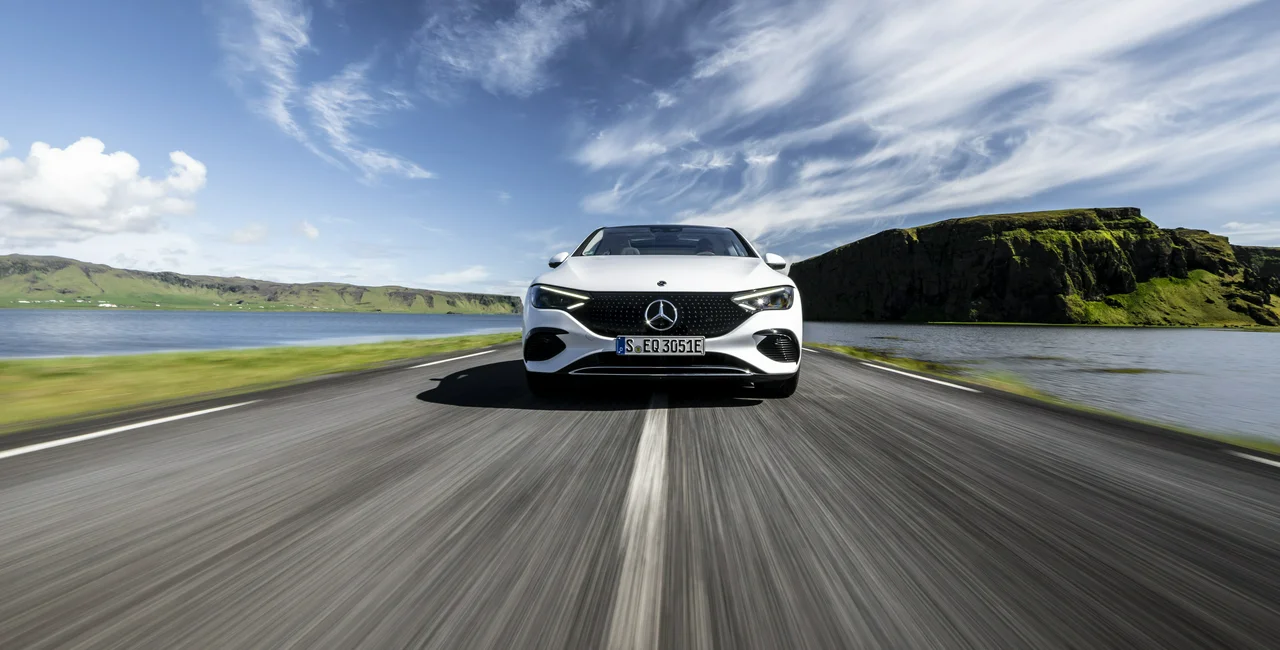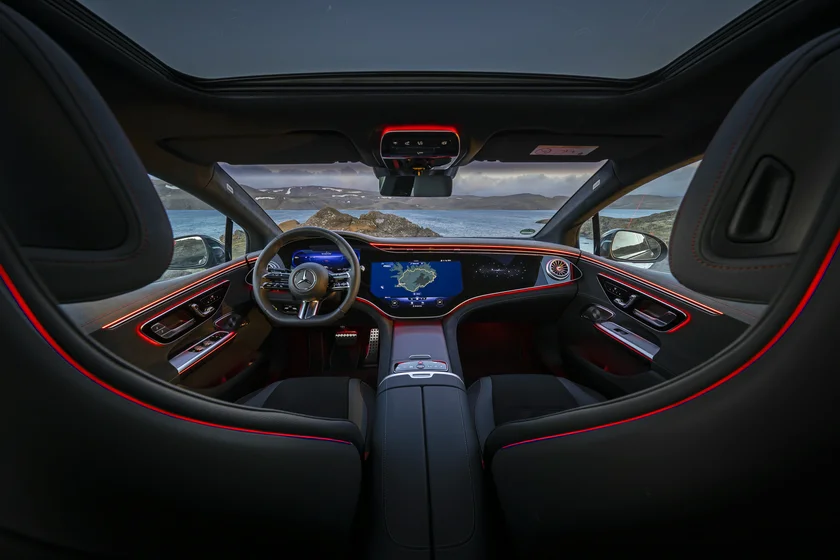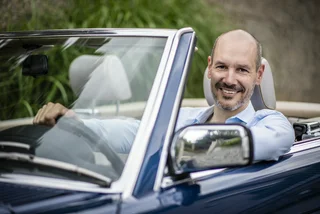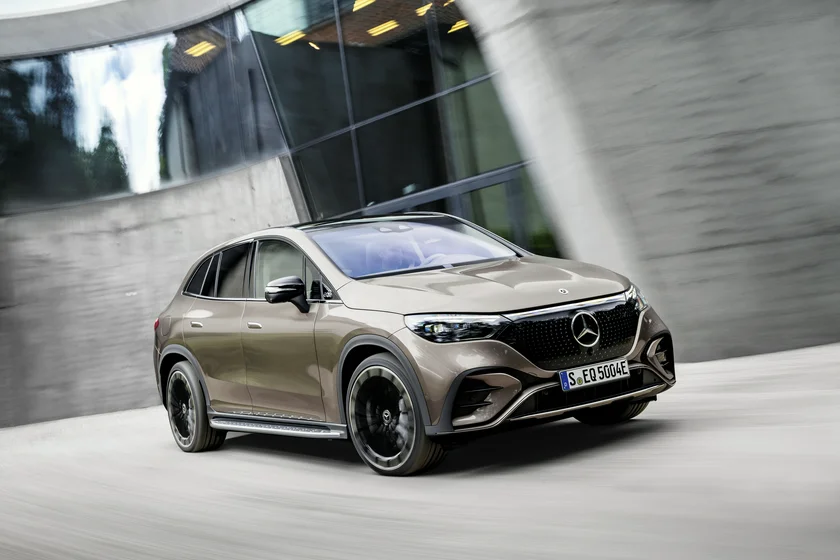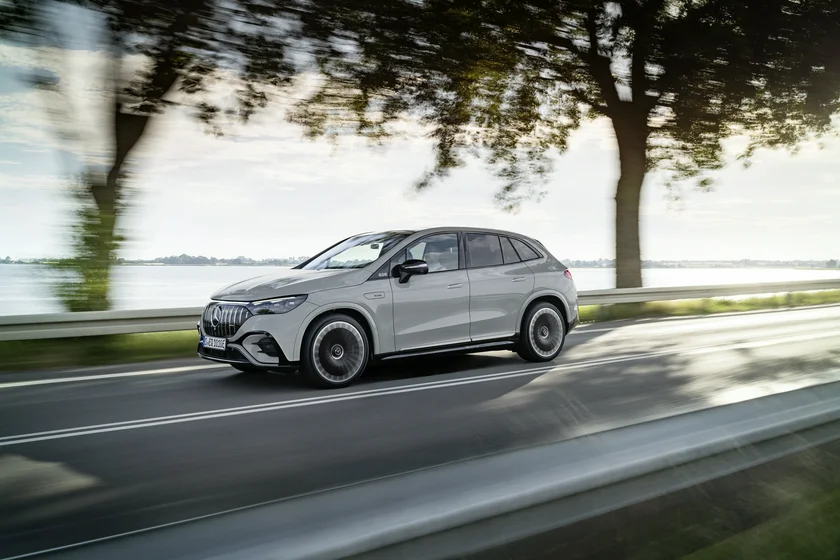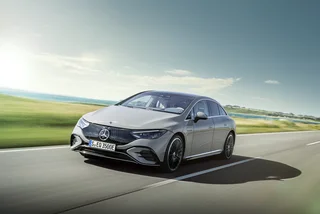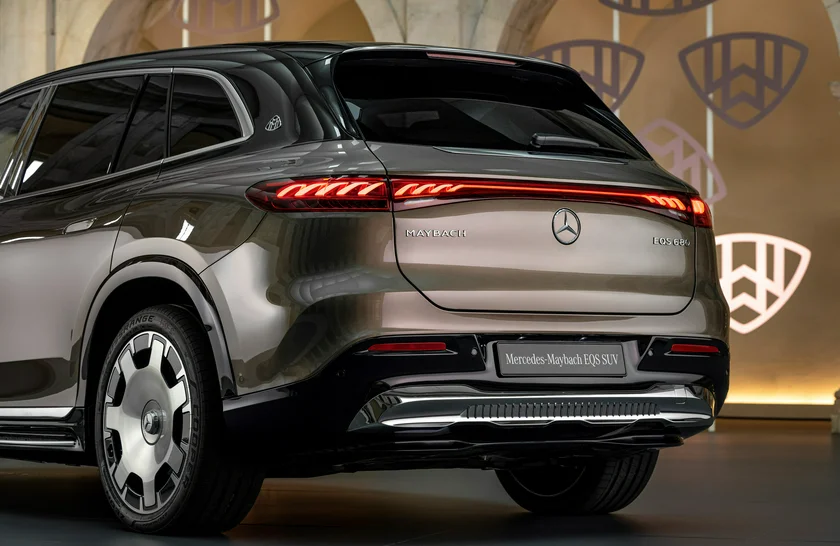The car industry is in a period of profound change. Along with rapid technological advances affecting the driving experience, carmakers are shifting production to meet modern demands of sustainability as Europe attempts to make road transport greener.
For an industry leader like Mercedes-Benz, this transition presents both challenges and opportunities. The company is recording strong results as it focuses on combining two key elements of its production philosophy: sustainability and luxury.
The famous brand is leading the way in a new era of sustainable car production, because it recognizes that in the 21st century, sustainability is an integral part of luxury. As it puts more emphasis on its high-end car range, Mercedes-Benz is innovating new methods for sustainable production while developing advanced technologies that create a modern luxury driving experience.
Sustainable production
When it comes to enhancing the sustainability of the car industry, drivers’ switch to electric vehicles is just the tip of the iceberg. Behind the scenes, making production processes more environmentally friendly is an urgent priority.
In March, Mercedes-Benz held a ground-breaking ceremony for a new battery recycling factory in Kuppenheim, Germany, where the mechanical dismantling and recycling of electric vehicle batteries will ramp up later this year. A hydrometallurgy pilot plant is also planned for the site, which would result in an integrated recycling location capable of a recycling rate of more than 96 percent.
Recycling is particularly important for the growing production of electric cars around the world, because of the relative scarcity of many key materials required in production.
Jörg Burzer, Member of the Board of Management of Mercedes-Benz Group AG, said the new factory’s “innovative technology approach enables us to incorporate the valuable raw materials into new Mercedes-EQ vehicles.”
According to Thekla Walker MdL, Minister for the Environment, Climate Protection and the Energy Sector Baden-Württemberg, the recycling plant “is of particular importance given the limited availability of important and highly sought-after raw materials such as lithium, cobalt or nickel.”
The new battery factory is just one part of Mercedes’ global drive to make production more sustainable based on circular economic principles such as recycling. Other critical factors include technological advances to cut CO2 emissions in steel production and other heavy industrial processes.
Mercedes-Benz has a target for its new vehicle production to become fully electric by 2030 where market conditions allow – a full five years before the European Union’s ban on the sale of new combustion-engine vehicles comes into effect. The company aims to become net-carbon neutral by 2039. It has also committed to building passenger cars using at least 40 percent recycled materials by 2030, including the repurposing of waste from land or marine debris.
100 percent electric
The clearest sign of Mercedes’ focus on sustainable transport is its mission to go all-electric by 2030. This landmark task requires a major overhaul of the company’s industrial network, including production for batteries, electric drive units, electric axles and more, along with training and re-skilling processes to prepare its workforce for the new era.
It’s a sea change not only for drivers but also for people working in the automotive industry. Mercedes’ oldest manufacturing location, which was built in Berlin in 1902, has been reconfigured to include assembly operations for electric drive units as well as the electric control units of batteries. Electric vehicle production has become central everywhere Mercedes operates: from Germany and Poland to America, China, and Thailand.
Mercedes expects fully-electric vehicles and plug-in hybrids to account for around 50 percent of its sales by 2025, confirming high public demand for such vehicles, especially in the luxury segment of the car market.
“The successful launches of Mercedes-EQ models in recent months show that our global production network has long since arrived in the electric era. Today, our global powertrain production network is already supplying the Mercedes-EQ vehicle plants with state-of-the-art batteries and electrified axles,” said Jörg Burzer.
Technologies for luxury
For Mercedes-Benz, luxury should be holistic, taking into account every aspect of car production and use. The driving experience remains at the heart of everything the company does, and as drive systems transform, Mercedes-Benz has introduced an all-new proprietary operating system that will be central to its future products.
The MB.OS operating system will be introduced mid-decade with the new MMA (Mercedes Modular Architecture) platform for vehicle design. It will help integrate car functions using purpose-built chip-to-cloud software, with full access to all vehicle domains including automated driving, infotainment systems, comfort, driving, and charging.
As part of this upgrade, Mercedes will be the world’s first carmaker to create its own branded navigation experience, combining in-car data with information from Google Maps which will be embedded into MB.OS. Integration with Google will give customers access to Place Details with information on over 200 million businesses and places. It will also allow drivers to use YouTube through the infotainment system when parked, or while using the DRIVE PILOT Level 3 conditionally automated driving system.
In connection with this new level of software integration, Mercedes-Benz is focused on further developing effective automated driving systems in partnership with NVIDIA. Its goal to achieve automated driving up to speeds of 130 km/h will see the NVIDIA DRIVE Orin system-on-chip, capable of conducting 254 trillion data processing operations per second, take on the role of the vehicle’s “driving brain.”
The transition to electric vehicles is one of many rapid technological advances set to change the way we drive, and Mercedes-Benz is a pioneer in this process. By spearheading solutions for the shift to a new age of road transport, the company is also redefining concepts of luxury and sustainability to reflect modern values.
This article was written in cooperation with Mercedes-Benz Česká republika s.r.o. Read more about our partner content policies here.












 Reading time: 4 minutes
Reading time: 4 minutes 